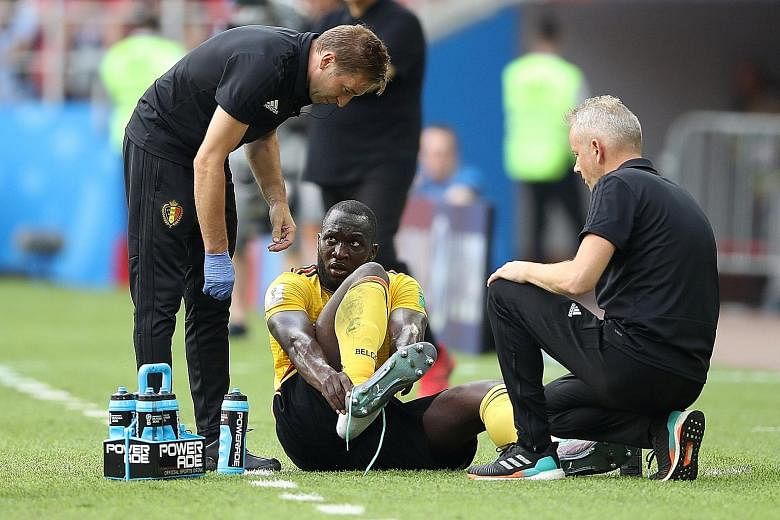MOSCOW • Belgium striker Romelu Lukaku realised how poor his family was when he saw his mother watering down the milk. The football talent he is showcasing at this World Cup was their passport out of poverty.
The Manchester United man has opened up about growing up in Antwerp, and his resolution to ignore critics and have fun in Russia.
Lukaku has started the tournament in spectacular style, scoring four goals in two games - becoming the first player since Argentina legend Diego Maradona in 1986 to score two or more goals in consecutive World Cup matches.
But he told sports website www.theplayerstribune.com that his determination to succeed was forged in the gritty suburbs of Belgium's second-largest city - far from the glamour of football's biggest showpiece.
The child of Congolese immigrants, he recalled that his family were often short of food when he was a child, and sometimes prayed in the dark because there was no money to pay for power in their apartment.
"We didn't have enough money to make it last the whole week. We were broke. Not just poor, but broke," he wrote.
"My father had been a pro footballer, but he was at the end of his career and the money was all gone."
Lukaku, now 25, said he was just six when he realised how dire his family's situation was after seeing his mother adding water to milk to make it go further.
It was then he decided his own professional football career was the way to lift them out of poverty.
Lukaku's drive only grew stronger at 12, when his dying grandfather made the boy promise to look after his mother.
The player revealed he also experienced prejudice, with parents of children on opposition teams asking where he was from and questioning his eligibility to play.
"I thought, 'What? I was born in Antwerp. I'm from Belgium'," he said. "I played with so much anger because of a lot of things, because of the rats running around in our apartment, because I couldn't watch the Champions League, because of how other parents used to look at me."
He signed a professional contract with Anderlecht on his 16th birthday and made his first-team debut with the club 11 days later.
After spells with Chelsea, West Bromwich Albion and Everton, Lukaku moved to Manchester United last year for £75 million (S$135 million).
He is Belgium's record scorer, but admits he felt pressured at the 2014 World Cup, when he scored only once as highly-fancied Belgium made a last-eight exit.
He said when he was scoring for his homeland, he was described as Belgian but, if his form dipped, he became, "Romelu Lukaku, the Belgian striker of Congolese descent".
"I'm going to remember to have fun this time," he said. "Life is too short for the stress and the drama. People can say whatever they want about our team and about me."
He added that his greatest regret was not the 2014 campaign, but the fact that his grandfather never saw him achieve his dream of becoming a professional footballer and providing for his mother.
"I wish I could have one more phone call with him, and I could let him know," he said.
"See? I told you. Your daughter is okay. No more rats in the apartment. No more sleeping on the floor. No more stress. We're good now."
AGENCE FRANCE-PRESSE

